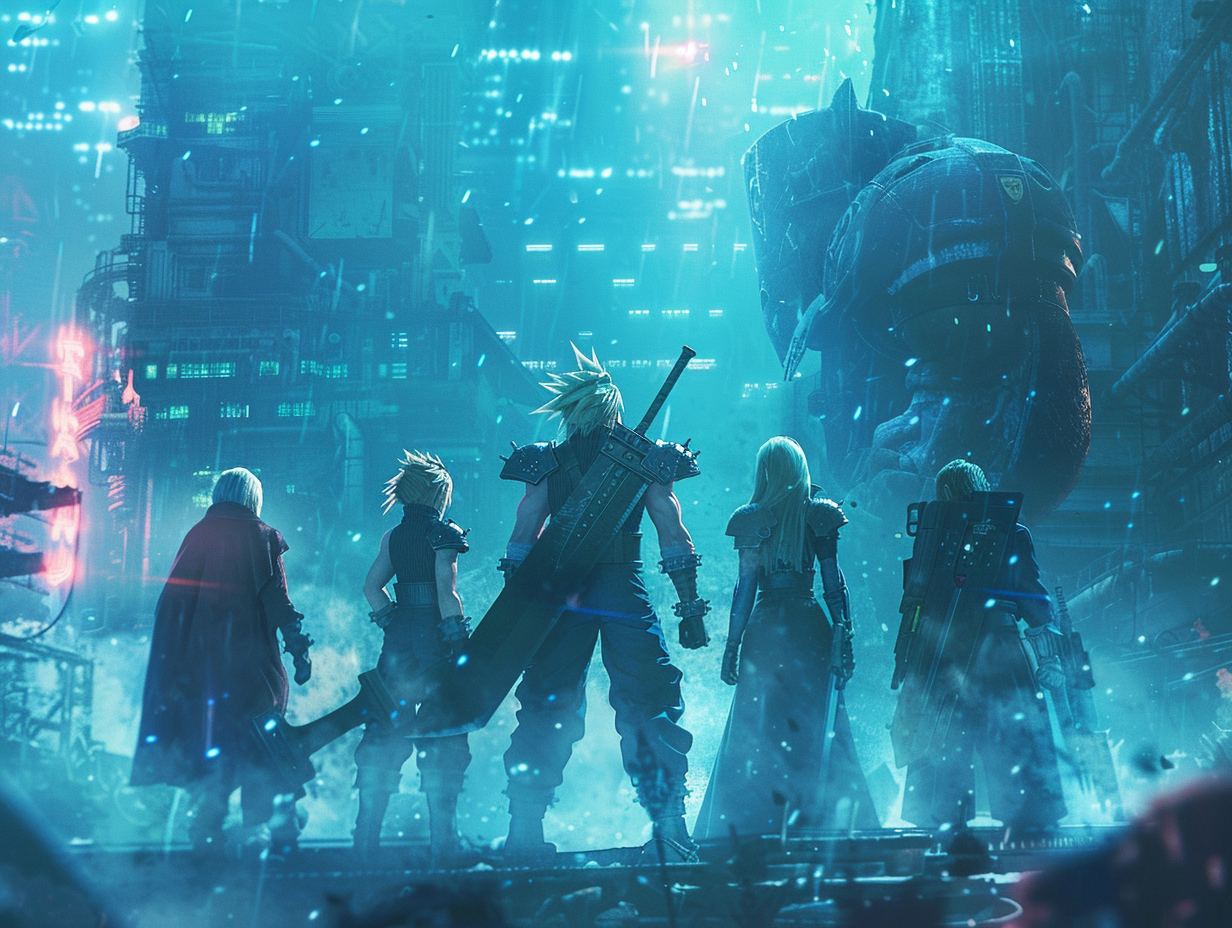Final Fantasy 7 Rebirth, LGBTQ+ representation thrives, promising a satisfying experience for players. Unlike its predecessor, Rebirth boldly navigates queer narratives, defying traditional norms within the RPG landscape.
One notable aspect is the nuanced portrayal of Cloud and Sephiroth’s relationship. Their interactions brim with suggestive undertones throughout the game, challenging typical gender dynamics. A scene where Sephiroth embraces Cloud showcases this complexity, blurring lines between tenderness and manipulation.
Similarly, lesbian dynamics are subtly woven into the narrative through Aerith and Tifa’s interactions. Their frequent hand-holding and affectionate gestures hint at a deeper connection, shaping them into integral parts of a queer polyamorous dynamic rather than conforming to traditional love triangles.
Moreover, Final Fantasy Rebirth introduces explicitly queer NPCs, adding depth to its diverse world. Players encounter instances like aiding a musician and his boyfriend to elope and observing same-gendered couples in casual settings, enriching the game’s tapestry of inclusivity.
In essence, Final Fantasy 7 Rebirth emerges as a beacon of LGBTQ+ representation in gaming, seamlessly weaving diverse narratives into its immersive world.
Exploring queer themes in Final Fantasy 7 remake
Final Fantasy 7 Remake has sparked discussions about its queer subtext, a tradition within the series. Even before its release, interpretations of the characters leaned towards queer readings. In a 2018 Vice Magazine article, cultural critic Diana Tourjée offered a transgender perspective on Sephiroth, the game’s antagonist, highlighting themes of identity and self-acceptance in his character arc.
The game delves into struggles with identity, particularly for characters like Cloud, Tifa, and Aerith. Cloud grapples with Sephiroth’s influence, while Tifa seeks to define herself beyond her bar, and Aerith confronts her unique heritage. These themes of introspection resonate strongly with queer players.
However, LGBTQ+ representation in the series has faced criticism. The original 1997 game often treated queer themes humorously or derogatorily. For instance, Cloud’s crossdressing segment in Wall Market was played for laughs.
In Final Fantasy 7 Remake, this scene undergoes a significant transformation. It becomes a celebration of beauty beyond gender norms, culminating in a grand dance scene where Cloud embraces his cross-dressing with confidence. This shift reflects a more respectful approach to LGBTQ+ themes in the game, a departure from the original’s shortcomings.
Embracing Diversity in Character Portrayal: A Look into “Rebirth”
Amid the Gold Saucer Ferris wheel conversation, Cloud and Barret engage in heartfelt dialogue, reflecting the game’s commitment to breaking barriers.
Unlike its predecessor, “Rebirth” subtly incorporates queer themes and challenges gender norms, creating a more inclusive narrative. The game cultivates deeper, more emotionally charged storytelling by liberating characters from societal constraints.
John Eric Bentley, voicing Barret Wallace, aimed to portray a nuanced character devoid of caricature. This approach exemplifies Barret’s emotional depth, particularly in his relationship with his adopted daughter. In Rebirth, toxic masculinity no longer stifles Barret; he openly expresses vulnerability and supports his companions.
The game embraces emotional authenticity, evident in Barret’s involvement in a touching side quest. Rebirth underscores his willingness to defy conventional norms and prioritize genuine character development through his actions.
Courage and empowerment permeate the narrative, enhancing the gaming experience for all players. “Rebirth” exemplifies the power of honest storytelling and the celebration of diverse identities.
Land a High-Paying Web3 Job in 90 Days: The Ultimate Roadmap
 Final Fantasy 7 Rebirth
Final Fantasy 7 Rebirth